Is Ginger Good For Joint Pain? Tradition Vs. Science
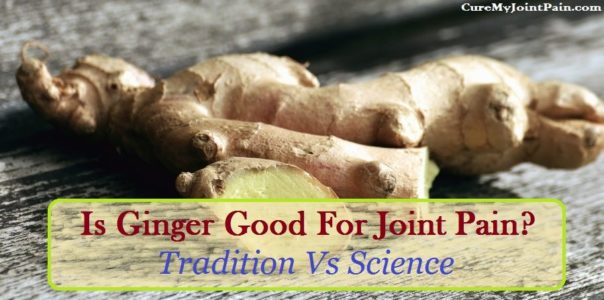
Unless you lived under a rock for all your life, you surely heard of ginger. It’s one of the natural herbs good for anything, from fever to nausea, stress or even rashes. But what about pain? Is ginger good for joint pain as well?
Does it work in arthritis too? Can it treat the joint problems from lupus? Or does it have any visible effect in osteoarthrits?
In this post, I want to find the connection between ginger and joint-related conditions, like the ones I mentioned above. As it’s useful in so many problems, ginger may be very effective in joint pain as well. But there’s only one way to prove that: by analyzing what contains this herb and what studies say about it.
So let’s find out whether ginger is worth trying for your joint pain or not.
What’s Inside The Ginger Root
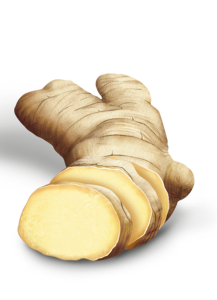 As it’s always been such a popular remedy, ginger has been studied for a very long time. For this reason, it’s even more surprising that there are still unknown compounds inside the ginger root.
As it’s always been such a popular remedy, ginger has been studied for a very long time. For this reason, it’s even more surprising that there are still unknown compounds inside the ginger root.
There are about 400 different structures in ginger, so this explains why this herb is so effective in so many medical fields.
But there are 4 major categories of substances inside the ginger root: carbohydrates, lipids, terpenes and phenolic compounds.
Other than that, there are numerous substances in a lower percent. And as I said before, there are a few whose action we don’t know yet. That’s just an evidence why ginger is so widely used around the world.
But it’s not all about medical compounds. You surely felt the smell of this herb – it’s very uncommon, and I don’t know any substance with a similar smell.
That’s because ginger also contains several essential oils, that are responsible for its original smell. If you want some names, take zingiberene and bisabolene.
What Compounds Are Effective In Joint Pain
 Though it has over 400 different substances, most of the compounds from ginger don’t have much to do with treating pain.
Though it has over 400 different substances, most of the compounds from ginger don’t have much to do with treating pain.
It’s all about gingerols, shogaols, paradols, and zingerone that help with inflammation. They don’t have very common names, but their effects are much more beneficial that you think.
How exactly?: These phenolic compounds manage to inhibit the activity of cyclooxigenase enzymes, that are knows as COX1 and COX2. These enzimes are responsible for most inflammations, so once they are blocked the swelling calms down and consequently, the pain starts to decrease.
However, inflammation is more than just COX enzymes. Well, the substances from ginger are more as well.
They are effective in reducing the other ways of inflammation. They block leukotriene synthesis and stop the production of interleukines. These substances are also involved in inflammation, but not as much as the COX enzymes.
But as ginger manages to stop all 3 channels of inflammation, it must be effective in joint pain.
What Tradition Says
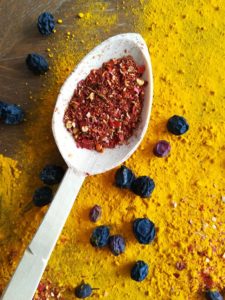 Ginger started getting popular in America in the last 10-15 years, do you agree? I personally didn’t hear much about it before, it was just an “oriental spice”.
Ginger started getting popular in America in the last 10-15 years, do you agree? I personally didn’t hear much about it before, it was just an “oriental spice”.
However, people have been using it for centuries in Asia and Arabic countries.
They use ginger for hundreds of problems, but I only want to talk about the ones related to joint pain. And if you’re questioning its benefits in this condition, you should know that Indonesian people use ginger in several remedies for rheumatism.
How is it used?: Drinks, local applications and even ointments are their ways to use ginger for joint pain. And these aren’t recent recipes, you can imagine.
But there’s no country where ginger is used more than China. Chinese people treat their muscular pain and inflammation by applying a special ginger infusion on their painful spot. Also, ginger drinks are very effective in auto-immune conditions like rheumatoid arthritis, according to them.
So if you ever questioned the benefits of this herb, these countries are just an example that it can be very effective. After all, there’s a long history behind these facts, so I personally believe them.
What Science Says
 Over the last decades, researchers conducted hundreds of studies about the action of ginger, and probably the most studied topic was its use in treating inflammation and pain.
Over the last decades, researchers conducted hundreds of studies about the action of ginger, and probably the most studied topic was its use in treating inflammation and pain.
Tradition was probably the main reason, because ginger is among the most used herbs in the Eastern part of the world. So is it all a scam or there’s a scientific explanation behind?
A 2015 study showed that the compounds from ginger do have the ability to reduce inflammation, by inhibiting COX enzymes, leukotrienes and interleukines. So judging after that, ginger should show amazing effect in joint related conditions.
The Real Facts: However, the reality turned out to be a bit different. The difference between patients using placebo and the ones using ginger weren’t very significant. And though there were many groups of patients who noticed big improvements, there weren’t enough studies to reach a positive conclusion.
So for now, science says that it doesn’t have enough data to claim that ginger is effective in joint pain. Both researchers and patients admit its benefits, but unfortunately there aren’t enough information to state this fact clearly.
Final Verdict – So Is Ginger Good For Joint Pain?
I cannot reach the same conclusion as science, because science is aware of the benefits of ginger. But there isn’t enough evidence to put it in medicine books.
For this reason, I will give you my conclusion. Yes, ginger is indeed very effective in joint pain, but it can’t always treat joint pain alone. If you get the pain after physical effort, this herb should normally treat it completely.
But if you have a real condition like osteoarthritis or any type of auto-immune arthritis, ginger supplements will probably not work alone. Yes, they could help you a lot, but you must follow the regular treatment and associate this herb with something else.
Herbs can work amazingly in joint pain, but they can’t always make miracles alone. That especially if you have a joint condition causing your problems.
Have you ever tried ginger for your joint pain? Did you notice any improvement? Let me know your answer in a comment and I will reach out to you.


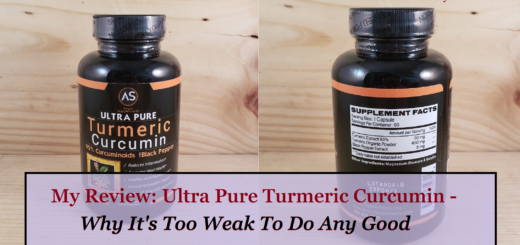

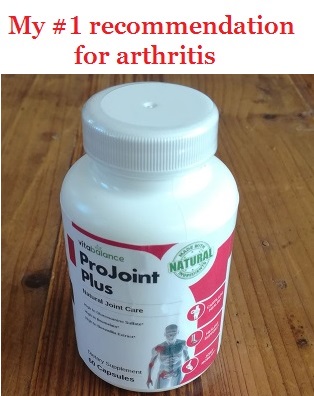
I don’t know if ginger is good for joint pain, but it gets my pain better. Been fighting osteoarthritis since my 50s, and herbs really help. But I’s still like something powerful. Do you have any supplement recommendation for me?
Hey Gary, sorry to hear it’s been such a long journey with oseteoarthritis. If you want something for your pain that is both natural and effective, you should try a product based on turmeric. This is the very best herb in inflammation.
However, you said your pain is caused by osteoarthrits. In this case, glucosamine products could provide a better effect on the long term. So that’s what I would choose, if I were you.